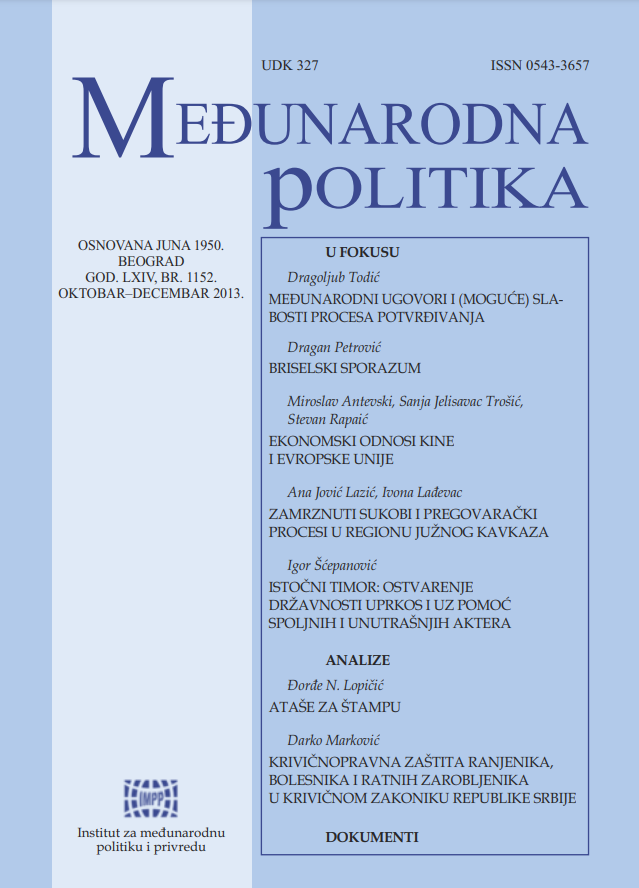Globalizacija i regionalizacija kao savremeni procesi svetske privrede
Globalisation and Regionalisation as Contemporary Processes of the World Economy
Author(s): Nebojša PraćaSubject(s): Economic policy, International relations/trade
Published by: Институт за међународну политику и привреду
Keywords: Globalisation; regionalisation; integration; crisis; security
Summary/Abstract: The contemporary world is faced with the economic-political and social changes and crises. For this reason, the paper endeavours to analyse globalisation and regionalisation as the contemporary processes of the world economy and supranational links based on the new technology. The author emphasises the economic aspect of globalisation within which national economies are interdependent. Globalisation consists of profound international economic integration of market, capital, goods and services, financial markets and migrations, including transfer of business to some other countries. However, the public is interested in the feedback effects of international economic integrations which cause insecurity for national identity, the capacity to manage the development of one’s own country, the pressures to lower earnings and worsening of work conditions and the quality of life. “Globalism” enables mass production spurring the development of developing countries, but it also transforms developed economies in the direction that goes towards a new production process based on knowledge and new technologies. Strengthened competition gives a chance only to those economies that will secure themselves a position within globalism by low shares of earnings and by the introduction of new technologies. Today, European institutions have the opportunity to strengthen integrations. However, it is not certain that these institutions and national governments will do all they should do. Frequent crises have shown that the market economy does not only depend on the strivings towards making bigger profits, but also on ensuring security and offering public services which are beyond the profit-led economy requiring good investments and a law-based state. The market economy which is led by the wish to make a profit and personal gains that are connected with private wealth, are not sufficient. For this reason, speculators should be treated in accordance with the rules of the law and control over financial markets should be established under adequate institutional supervision. Otherwise, insecurity can emerge in Europe and in South-Eastern Europe, in particular. No country can ensure security and stability without achieving higher rates of economic development. The subject of this paper is how to manage changes and how to ensure economic growth and stability and maintain one’s own economic and political national identity in the context of globalisation.
Journal: Међународнa пoлитика
- Issue Year: 64/2013
- Issue No: 1152
- Page Range: 152-172
- Page Count: 21
- Language: Serbian

